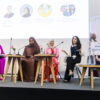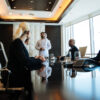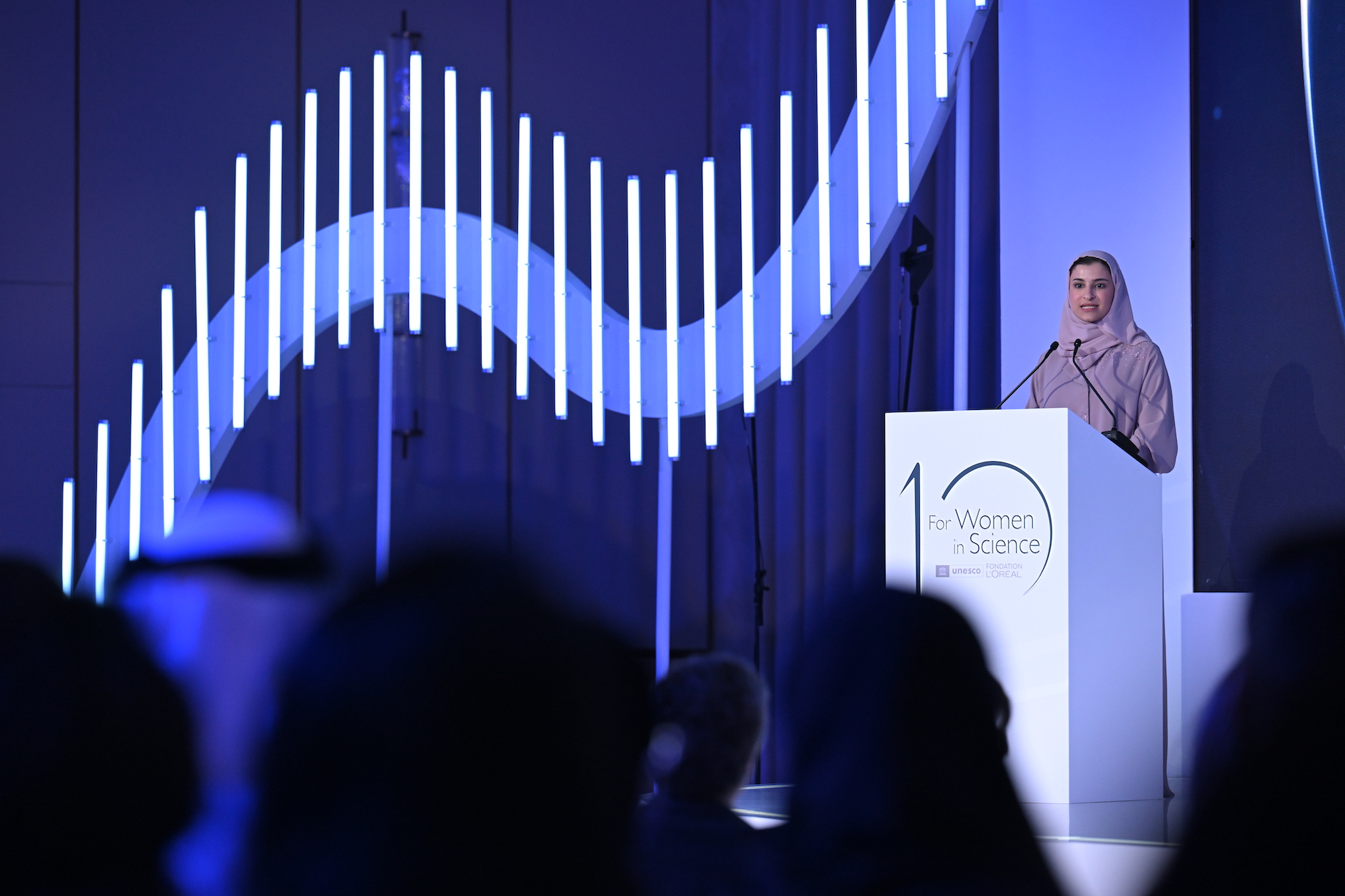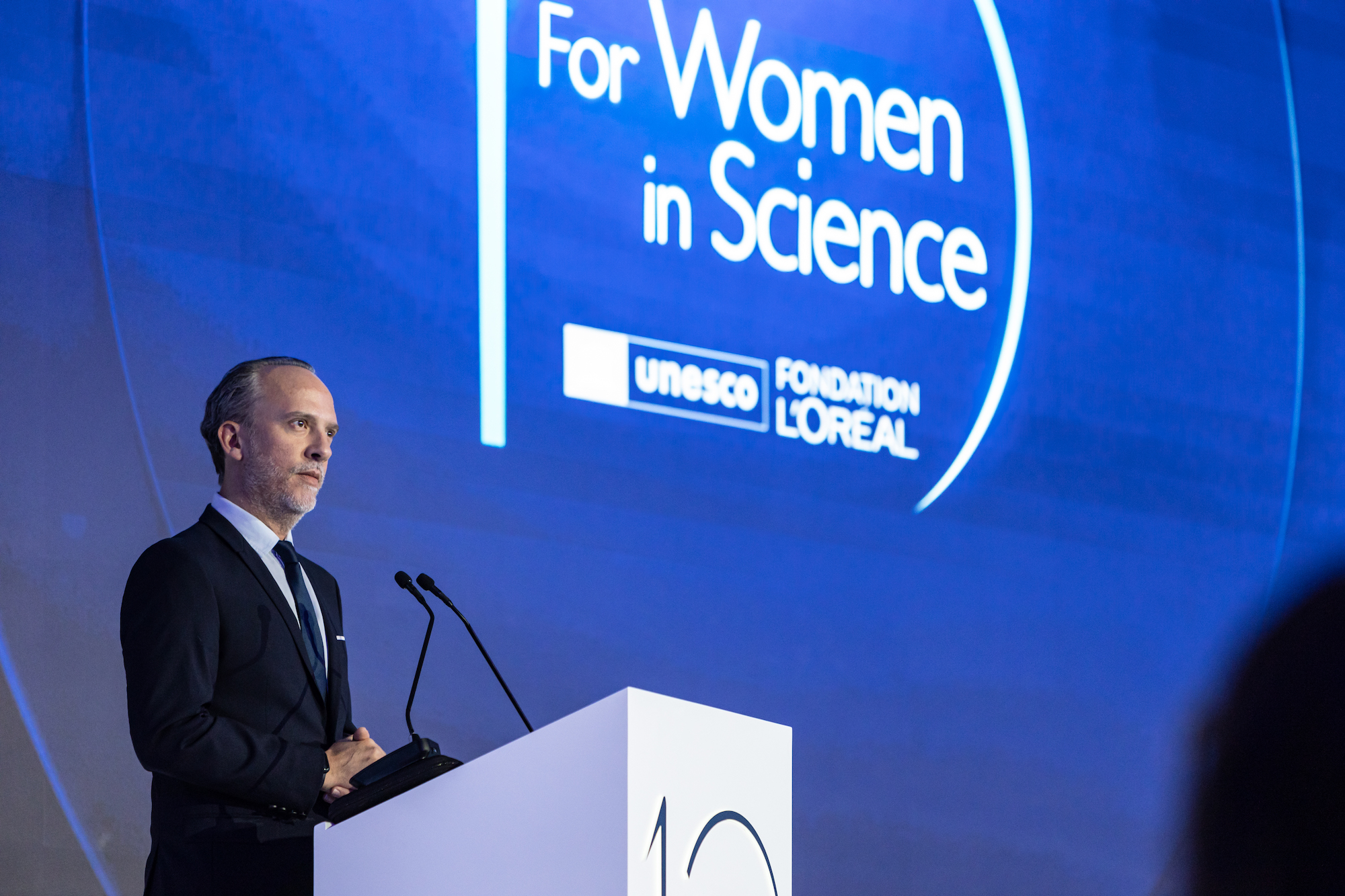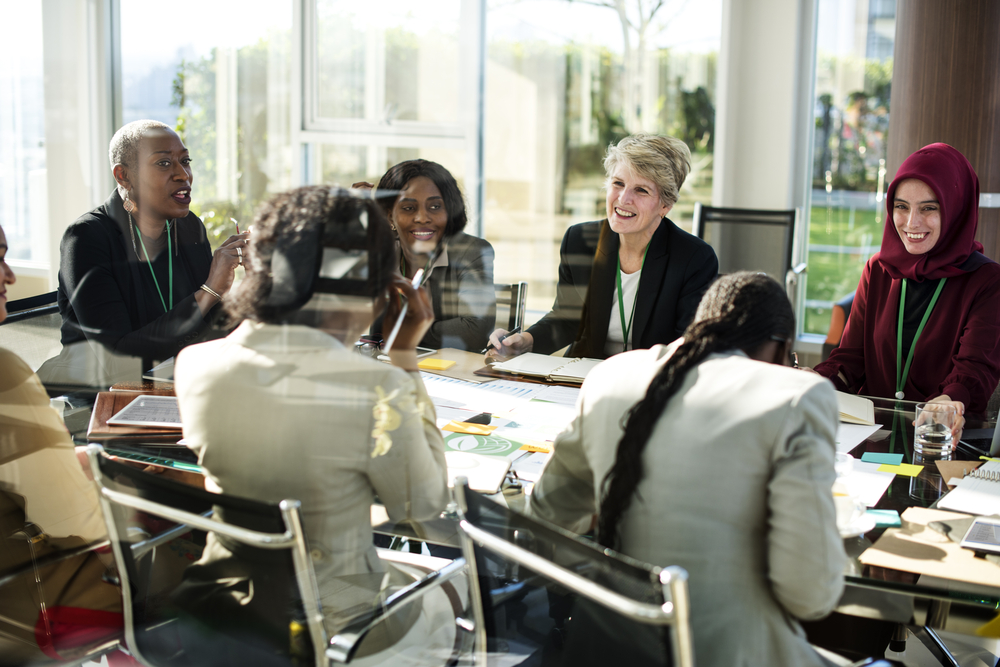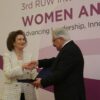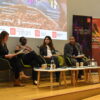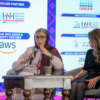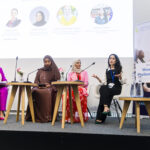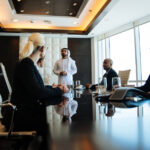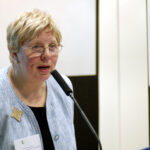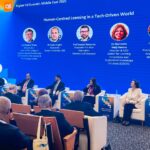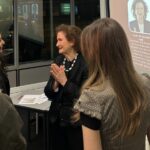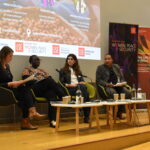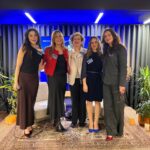As a longstanding advocate for women’s empowerment and inclusion in STEM in the MENA and globally, the Arab International Women’s Forum is most proud to have supported the L’Oréal-UNESCO For Women in Science Middle East Regional Young Talents Program in 2023, sharing the call for applications with our MENA and international network of aspiring and emerging women leaders in STEM.
The L’Oréal-UNESCO For Women in Science Middle East Regional Young Talents program aims to promote the participation of young women in science coming from Yemen and GCC Countries including UAE, KSA, Qatar, Bahrain, Kuwait and Oman. The program identifies and rewards talented young female scientists in the field of Life Sciences (such as biology, biochemistry, biophysics, genetics, physiology, neurosciences, biotechnologies, ecology and ethology) as well as Physical Sciences (such as physics, chemistry, petroleum engineering, mathematics, engineering sciences, information sciences, Earth and Universe sciences). The Program honours six talented young Arab women researchers for the quality of their research works and encourages them to pursue a brilliant career in science in Yemen and GCC countries. Since its inception in the GCC in 2014, the program has made prodigious strides in nurturing and furthering the research endeavors of 51 female Arab scientists by awarding endowments totaling AED 3.4 million and supporting their professional growth.
AIWF President & Founder Haifa Al Kaylani attended the Award Ceremony earlier this week on The Palm in Dubai, held for the fifth consecutive year under the patronage of HE Sarah Al Amiri, UAE Minister of State for Public Education and Advanced Technology and Chairperson of the UAE Space Agency, and hosted by Laurent Duffier, Managing Director of L’Oreal Middle East. It was truly an honour to join the L’Oréal-UNESCO For Women in Science Middle East Regional Young Talents Program and Khalifa University of Science and Technology in recognising female scientists from the GCC in the fields of Life Sciences, Physical Sciences, Mathematics and Computer Science, who have blazed trails and are changing the landscape of scientific discovery in the region. The ceremony to mark the 10th anniversary awarded 11 visionary researchers from the GCC underscoring their pivotal role in advancing knowledge, finding solutions to pressing global issues, and pushing the boundaries of scientific understanding. Among them are several scientists who have also received international recognition, with five going on to win the International Rising Talents Awards, and another four scientists receiving the L’Oréal-UNESCO For Women in Science International Award.
Her Excellency Sarah Al Amiri said: “The extraordinary accomplishments and dedication of women scientists in the region has paved the way for progress in various fields, influencing everything from healthcare and technology to environment sustainability and space exploration. Initiative like the one by the Foundation L’Oréal and UNESCO has been empowering female game-changers, encouraging more women into STEM careers, and paving the way toward diversity. Such programs create a necessary foundation in our pursuit for scientific progress, innovation and a more inclusive society.”
STEM is regarded as critical to national economies, yet most countries, no matter what their level of development have not achieved gender equality in these fields. At the end of the 1990s, women represented 27% of researchers worldwide. In 2014, that increased to 30%. While there has been a gradual increase in the number of women pursuing scientific careers, they are still disproportionately underrepresented in the domain of research.
According to the latest UNESCO Science report, even today, just one in three researchers is a woman, and this drops by nearly half at a senior level. Additionally, less than 4% of women have been awarded a Nobel Prize for Science.
These unsettling figures continue to propel the L’Oréal-UNESCO For Women in Science Program, which was established on the ethos that ‘The world needs science and science needs women’. The program was created to break down barriers to progress for women in STEM and provide them with the tools to succeed.
Laurent Duffier, L’Oréal Middle East Managing Director said: “Since its inception 10 years ago, the L’Oréal-UNESCO For Women in Science Middle East Regional Young Talents Program has stood as testament to the remarkable talent, intellect and determination of female scientists in the GCC. It has furthered the fight for gender equality in STEM careers, bringing forward their invaluable contributions and cutting-edge research. As we move into the next decade and beyond, we will continue to strive for greater representation, supporting the dreams of young scientists and dismantling the barriers that still exist.
Dr Arif Sultan Al Hammadi, Executive Vice-President, Khalifa University of Science and Technology, said: “We are proud to be associated with the L’Oréal-UNESCO For Women in Science Middle East program for the fifth consecutive year, which has been successfully creating equal opportunities for the region’s women researchers for the past decade. As a research-intensive academic institution, we witness the indispensable and multi-faceted role that our own women faculty and researchers play in driving scientific progress, technological innovation and societal development every day. We need to continue creating such avenues of growth and support for them, which will lead to the long-term prosperity, security and wellbeing in the region.”
Dr Tamara Elzein, the program’s newly appointed Jury President and the Secretary General of The National Council for Scientific Research, Lebanon, added: “Women scientists have been underrepresented and uncredited for their contributions throughout history. Even today, we have an uphill battel in bringing attention to their groundbreaking work, which is critical for the advancement of sciences. That is why programs like L’Oréal-UNESCO for Women in Science are essential to addressing the systemic gender bias by raising the profile of women scientists and supporting the growth of their careers. Equal representation matters because it brings diversity of perspectives, and fairness and equity to the field, all of which are necessary to create a robust scientific community that can further innovation to counter societal challenges.”
AIWF extends its warmest congratulations to all the award winners for their richly deserved recognition this week, and commends the visionary efforts of the L’Oréal-UNESCO’s global For Women in Science initiative that has already recognised over 4,100 phenomenal researchers and more than 127 International Laureates from more than 110 countries since its inception in 1998. AIWF looks forward to supporting this most worthy initiative again in 2024, solidifying AIWF’s growing network and impact for women’s empowerment in the critical STEM sectors, in the MENA and beyond.

